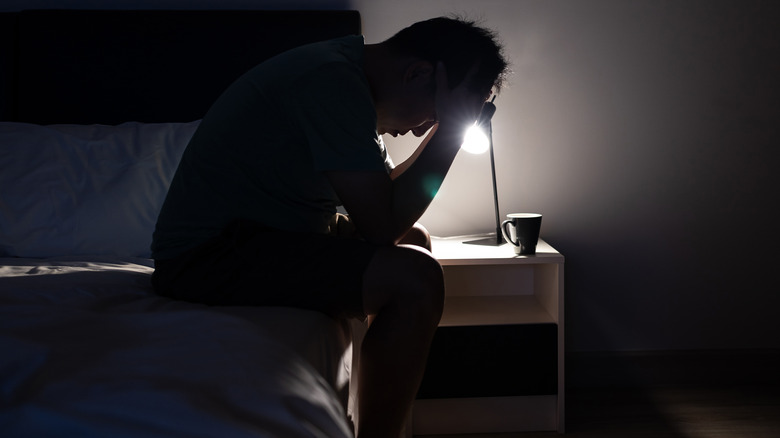When seeking support or treatment for mental health, there are many different routes one can take. According to experts at the Cleveland Clinic, some people may find speaking to a mental health professional — a process known as psychotherapy — can be helpful in identifying and altering specific behavioral or thought patterns. Psychotherapy can also help one develop coping skills to manage symptoms of a mental health disorder. For others, alternative therapies, such as acupuncture or meditation, may prove most helpful. Alternatively, others may find that antidepressant medications are most effective in relieving symptoms of a mental illness. Oftentimes, multiple forms of treatment may be used in combination for a more holistic approach to mental health.
Used to treat certain mental health conditions, such as anxiety, depression, panic attacks, post-traumatic stress disorder (PTSD), and more, antidepressants operate by restoring balance to an imbalance of neurotransmitters in the brain, reports Medical News Today. Yet not all antidepressants are the same. Rather, there are many different kinds of antidepressants, including selective serotonin reuptake inhibitors (SSRIs), monoamine oxidase inhibitors (MAOIs), serotonin and norepinephrine reuptake inhibitors (SNRIs), tricyclic antidepressants (TCAs), and noradrenaline and specific serotoninergic antidepressants (NaSSAs).
Stopping antidepressants suddenly can trigger withdrawal symptoms

It’s important to follow your doctor’s instructions precisely when taking antidepressants, reports Healthline. The benefits of antidepressants are not usually felt immediately and can take as many as four weeks to take full effect. After some time, however, some people feel they may be able to manage their mental health without the support of medication. It’s always best to speak with your doctor regarding the proper way to go about stopping antidepressant usage. Stopping abruptly on your own — a process known as going “cold turkey” — can pose some potential health risks.
According to experts at the Addiction Center, suddenly cutting off your antidepressant treatment can tip the chemical balance established in the brain back out of balance. This can put the body into a state of withdrawal, prompting symptoms such as headache, nausea, fever, tremors, confusion, hallucinations, vivid dreams, and more. In some cases, quitting antidepressants cold turkey can increase one’s susceptibility to suicidal thoughts. The severity of symptoms can also vary depending on how long one has been taking antidepressants. The longer someone has been treated with antidepressant medications, such as for years, the greater the likelihood that the withdrawal symptoms will be more intense. However, the Mayo Clinic explains that withdrawal symptoms associated with stopping antidepressants is not an indicator of addiction, as one does not experience cravings or damaging, long-lasting effects to their brain chemistry.
How to safely stop antidepressant treatment

As previously mentioned, there are many different types of antidepressants. Therefore, some may have different withdrawal symptoms than others. For example, in a 2024 study published in European Psychiatry, researchers cited a case in which a patient with obsessive-compulsive disorder (OCD) experienced delirium and seizures following the sudden discontinuation of the dual-action antidepressant Venlafaxine, as well as Pregabaline — a medication prescribed for anxiety and epilepsy (via National Health Service).
According to the Addiction Center, the severity of withdrawal symptoms from stopping antidepressants is linked with how long it takes to fully filter out of the body, referred to as its “half-life.” Prozac, for example, which has a half-life of five days, will have more intense withdrawal symptoms than Effexor, which leaves the body in six hours. Other antidepressants with long half-lives include Celexa, Lexapro, Paxil, and Zoloft. While withdrawal symptoms tend to last an average of up to three weeks, some may experience symptoms for months. For this reason, physicians implement a slow, tapering-off process over the course of several weeks or months for patients looking to stop antidepressant treatment. Although this timeline may sound longer than desired, experts agree it’s the safest and healthiest way to go about discontinuing antidepressant usage.
If you or someone you know needs help with mental health, please contact the Crisis Text Line by texting HOME to 741741, call the National Alliance on Mental Illness helpline at 1-800-950-NAMI (6264), or visit the National Institute of Mental Health website.




